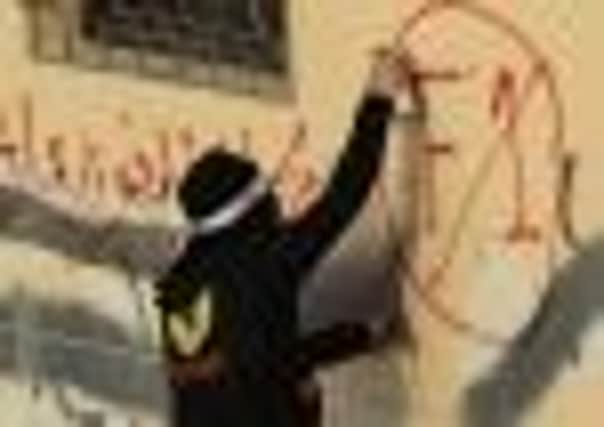Protests target Bahrain Grand Prix


The sentiment is shared by many Bahraini Shiites – the majority in this Sunni-ruled kingdom – who say the Formula One Grand Prix race Bahrain will host 19-21 April should be cancelled, as it was in 2011 when authorities crushed pro-democracy protests inspired by the Arab Spring. Two years on daily clashes still erupt, largely unnoticed outside the region.
The race will once again draw international attention to Bahrain. The 2012 meeting was accompanied by nightly skirmishes between protesters and security forces. This year, says F1 boss Bernie Ecclestone, the signs are that tensions in the kingdom have eased and the risk of protests has diminished. That’s a view opposition activists reject.
Advertisement
Hide AdAdvertisement
Hide Ad“Of course we’re against it,” said Amani Ali, a 22-year-old university student standing a few metres from Hassan at the first of a series of opposition-organised marches.
“The race brings money to the regime, which they use to buy weapons and attack us.”
Many of the companies who help to finance Formula One are limiting their sponsorship involvement. The sport makes most of its money from hosting fees and TV rights. Bahrain pays an estimated £26 million annually to be part of the 19-race calendar.
Home to the US Navy’s Fifth Fleet, Bahrain has faced unrest since pro-democracy protests broke out in February 2011, pitting a Shiite-dominated opposition against the minority Sunni-led government. The protest was crushed, dozens of people were killed and authorities razed “Pearl Square” where mostly Shiite demonstrators camped out in central Manama in 2011.
Now weekly sessions of a reconciliation effort between government and opposition known as the “national dialogue” take place outside Manama.
But daily confrontations between stone-and-petrol-bomb throwing youths and birdshot-and-teargas firing police reflect a bitter political atmosphere.
The protesters know the race will not be cancelled but feel there is an opportunity to use the media spotlight to highlight what they say are injustices still being committed against them.
The Shiite majority complain of discrimination in jobs and government while their loyalty in turn is questioned by members of Bahrain’s Sunni ruling family, bound by historical and marriage ties to neighbouring Saudi Arabia. “People are getting killed. They [the government] wants to show that there’s nothing wrong in Bahrain,” said Hassan.
Advertisement
Hide AdAdvertisement
Hide AdA drive through the capital Manama and nearby rich suburbs showcase multi-lane highways, glittering five-star hotels, business towers and billboards advertising concerts.
It is impossible to ignore the omnipresent pictures of the top three royal figures: King Hamad bin Issa al-Khalifa, prime minister Sheikh Khalifa bin Salman al-Khalifa and Crown Prince Salman al-Khalifa plastered across the city.
But a few minutes drive into poorer Shiite villages, and the skyscrapers are replaced by simple homes, many displaying graffiti that says “Down with Hamad”, “The people want the downfall of the regime”, and “Death to the al-Khalifa family”.
Last month, Hussein, a protest leader, said a group of men accosted him as he drove in his car late at night, and beat him.
“They told me to say ‘Long live the King’,” he said. The men asked him if he participated in protests to which he replied that he joined government authorised ones. After more threats, they let him go.